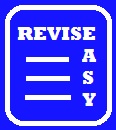Children and Young People' Workforce L2
TDA 2.9 Promoting positive behaviour
This unit is about creating a positive environment
for children and young people, which can be achieved by encouraging positive behaviour and discouraging negative behaviour or using rewards to encourage
good behaviour and use sanctions to discourage unacceptable behaviour.
Table 1 shows how rewards can be used to promote positive behaviour in children and conversely Table 2 shows how sanctions can be used to discourage negative behaviour.
Table 1
| Rewards | Positive behaviour | Can you give other examples |
|---|---|---|
| Stickers | Helping to tidy up Learning to count Learning the alphabet |
? |
| Medals |
Sport achievements Doing charity work |
? |
| Golden Time | Good behaviour, playing cooperatively Obeying school rules | ? |
| Verbal praises: Well done Wonderful Thank you |
Tidying up Eating all the food on the plate Making something with play dough Playing cooperatively |
? |
Give other examples of rewards |
? |
? |
Table 2
| Sanctions | Behaviour | Give other examples |
|---|---|---|
| Time out | Showing aggression Using bad language | ? |
| Take away favourite toy or miss playtime |
Snatching toys Refusing to tidy up |
? |
| Detention |
Not handing in homework Arriving late in class |
? |
| Give other examples of sanctions | ? |
? |
Practitioners and carers are role models for the young children, so it is important they set good examples in order to promote positive behaviour.
Examples:
- Being polite: saying thank you, please and sorry
- Treating every one fairly
- Listening and showing respect to children and adults
- Being consistent in their behaviour
Policies and procedures of the setting for promoting children's and young people's positive behaviour:
- Code of conduct
- Staff code of conduct
- Anti-bullying
- Dealing with conflict and inappropriate behaviour
Find out what the behavioural policies are in your work setting
Click here for TDA 2.9 in pdf format
REFERENCES
DFE (2014) Development Matters in the Early Years Foundation Stage (EYFS)
DFE (2014). Statutory framework for the early years foundation stage
DEF(2014). Early years (under 5s) foundation stage framework (EYFS)
DFE (2014) Keeping children safe in Out of hours provisions
DFE(2014) Early Years Outcomes
Parents - guide to EYFS (2014)
What to expect and when (2014)
The British Association for Early Childhood Education
(Supported by DFE)
Every Child Matters 2003)
Effective Pre-school and Primary Education 3-11 Project (2003-2008)
DFE (2008) Effective Pre-School and Primary Education 3-11 Project (EPPE 3-11)
Parliament (2003) Every Child Matters
Tassoni et al (2010) Level 3 Diploma Children and Young People's
Workforce (Early Learning and Childcare). Pearson: Harlow Essex
Caroline Meggit et al (2011) CACHE Level 3 Children and Young People's
Workforce Diploma: Early Learning and Child Care.
Hodder Education: London
www.gov.uk/government/
publications/
2010-to-2015-government-policy-childcare-and-early-education
www.education.gov.uk/publications
www.foundationyears.org.uk.
www.legislation.gov.uk/
www.4children.org.uk
